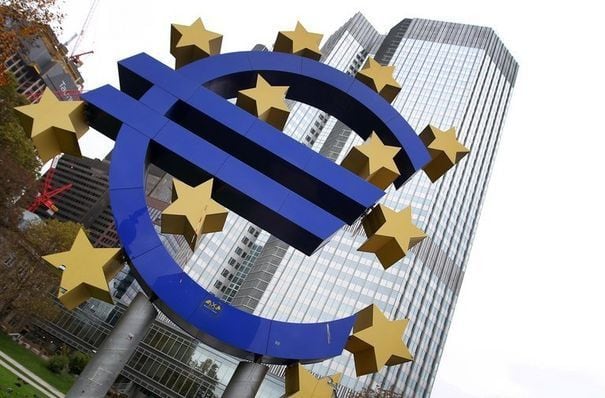Growth in France and Germany will be significantly lower than expected this year and next, weighing on activity throughout the European bloc, the International Monetary Fund (IMF) estimated this Tuesday, April 16 ). In its report on the world economy, the IMF reduced its growth forecasts for the two largest economies in the euro zone by 0.3 points compared to January. He now envisages growth of 0.2% for Berlin and 0.7% for Paris this year.
After the recession recorded last year, the German economy is restarting more slowly than expected: the IMF downgrades its 2024 growth forecast for the third time in a row due in particular to the “weakness” of consumption in the country. For France, this is the second deterioration in a row. The IMF still anticipated 1.3% growth last fall. Germany has recently been described by many observers as “the sick man of Europe”, echoing a phrase used in the late 1990s after the backlash to Reunification.
“Geopolitical instability”
Chinese competition, the effect of the green transition on industry and the rise in energy prices are weighing heavily on the German economy, underlines Stéphane Colliac, economist specializing in Germany and France at the BNP Paribas bank. France, for its part, is suffering from inflation and rising interest rates, in addition to the impact of the German slowdown, adds the economist. “The geopolitical context is not favorable to growth and confidence,” admitted a source at the French Ministry of the Economy on Monday, highlighting attacks by Houthi rebels in the Red Sea and the risks of escalation in the Middle East. Orient, and the persistence of the conflict in Ukraine.
In January, the French government cut its own 2024 growth forecast to 1%, but it still remains too optimistic compared to the expectations of major economic institutions. The Banque de France is targeting 0.8%, the OECD 0.6% and the European Commission 0.9%. The deterioration of forecasts for the two largest European economies will logically have an effect on the entire euro zone this year. The IMF now predicts growth of 0.8%, a decline of 0.1 point compared to previous figures.
Low growth
“Growth will increase this year but from a very low base,” recognizes the IMF, citing as negative factors the effects of rising interest rates, the cost of energy and the savings measures put in place at across Europe to fight deficits. The European economy should, however, regain momentum next year according to the IMF, which foresees 1.5% growth, especially as the European Central Bank (ECB) should begin to lower its interest rates in June and thus support the economic activity.
But here again, the IMF’s forecasts are less optimistic than in January: with 1.4% and 1.3%, growth expectations for France and Germany are down 0.3 points compared to January. , bringing down that for the euro zone by 0.2 points. Another European heavyweight, Italy should record growth of 0.7% this year according to the IMF, an unchanged forecast, but its economy will grow much slower than expected next year, with 0.7% compared to a previous one. estimate of 1.1%. Unlike its neighbors, Spain will show vigorous growth, with 1.9% this year (+0.4 points) and 2.1% next year (unchanged).
